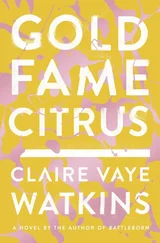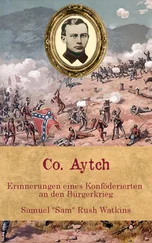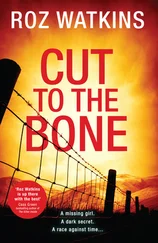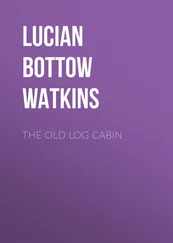Manny imagines the Italian looking back at him through the rear window of the cab. The ranch the boy would see looks like a dollhouse, down to its dormer windows hung with boxes of poppies and desert primrose. The wood siding is painted the bright fuchsia of deep flesh, the country trim a chalky lavender. Back east this building would be a bed-and-breakfast; in the Midwest it would be an antique store. But here there is a red light attached to the weather vane, rotating in the dawn. Here, it is what it is. Manny makes his way out back to the peacock coop.
Manny was hired to manage the Cherry Patch Ranch one day when he drove out from Las Vegas, where he grew up. He was eighteen, had been hustling for three years and always knew he was destined for something bigger, though it took a tranny john whipping him across the face with a stiletto for him to act on that instinct. Jim Hart—fifty then, with the girth and slope of an aging athlete and a full head of black hair just starting to gray—happened to be working the door that day, a stroke of luck, because Jim never worked his own door. Bad for business. Jim took one look at Manny and waved the girls off, saying, “Sorry, guy. We don’t have men in here.”
And Manny, prepared for this, said, “Why not? You’re losing money, honey. You want to know what I get for a hand job with Rentboys? Three fifty. A hand job. And that’s off - Strip, okay?”
Jim took him straight back to his office with Gladys, Jim’s assistant. After an hour Jim said, “Look, guy, bottom line: Every other Tuesday I load the girls into the van and we go down to Nye County Health and get them all looked at. Every other Tuesday. And no legal hooker, not in the entire state of Nevada, has ever tested positive for an STD. Not even crabs. It’s safe, clean sex. That’s the brand. I bring men in here… I’m not messing with a good thing. That’s all.” He tipped back in his chair and put his pen into his mouth. “But a fag madam. That’s unique.”
That was fifteen years ago. Manny walks past the girls’ fifth wheels lined in two rows behind the main house like eggs in a carton, with the courtyard and swimming pool between them. Beyond the fifth wheels are the single-wide trailers they call suites. The Oriental Room, the Hot Tub Room, British Campaign. The thick black wires of the intercom system droop between the buildings. The pool is ringed with knobby salt cedars and adolescent pomegranate trees. Manny drags Darla’s picnic table back to the courtyard where it belongs, in the rocky dirt peppered with screwbean mesquites and young cottonwoods. He plucks a cigarette butt rimmed with lipstick from a struggling patch of sod, puts it in his breast pocket; then he slips out to the coop.
On paper, Jim Hart raised Indian blue peacocks until 1970, when he got his operating license. Prior to that, as far as the government was concerned, Hart Ranches made its modest living selling the birds to zoos and private collectors. In reality, Jim hated selling the birds and found reason to do so as seldom as possible. When the cost of the food and upkeep was considered, the peacock business barely broke even.
The girls always brought in more money than the birds, but it was a long time before the Cherry Patch Ranch was much more than two single-wide trailers on either side of the wide, airy coop. Then, in 1970, as Jim and his friends in Carson City had suspected it might, the state legislature outlawed prostitution in Clark County. Jim remodeled, making the ranch straddle the county line, with the trailers and main house in rural Nye County, and the peacocks technically residents of Clark. By the time Manny arrived, the Cherry Patch was the closest a brothel could get to Vegas.
His second week, a courier came out and picked up three sedated chicks destined to roam some movie producer’s estate in the Pacific Palisades. Manny found Jim sitting on an overturned feed bucket by the coop, bawling into his hands. When he noticed Manny standing there watching, Jim leaned back against the chicken wire. “Goddamn it,” he said, and pressed the heels of his hands against his eye sockets as though he could stop his tears that way.
Manny squatted in front of the older man. “It’s all right.”
“I know that, kid,” Jim managed to say, before he crumpled forward again, crying and hiccuping like a child. Manny held him, stiff and awkward as a Joshua tree, half-stroking his head. He was no good at these things.
They stayed like this a while, and just as Manny’s thighs began to burn from squatting for so long, Jim calmed and his breath steadied, but he did not lift his face. Instead, he put his hand on the back of Manny’s neck and urged Manny’s head down toward his groin.
Working Jim’s belt buckle loose with one hand, Manny was grateful as a pet: here was something he knew how to do. Jim finished in Manny’s mouth, with a string of quick jerks that scraped the feed bucket along the ground, then zipped his Wranglers and wiped his eyes. He squinted out across the sagebrush. “Jesus H.,” he said. “It’s like selling off one of your kids.”
From that day on, Jim never sold another peacock. He named the remaining sixteen after Nevada’s sixteen counties. Washoe, the eldest female, died in the winter of 2003, when coyotes got into the coop. One of her mates, Lander, died of old age shortly thereafter, though on darker days it’s not hard for Manny to convince himself that Lander died of a broken heart. Now there are four females and ten males, including White Pine, a rare albino, red eyed and completely white, down to his feet and the tip of his thick, five-foot train.
After two years, Jim moved to Brazil. Retirement, he called it, though he was only fifty-two. He took his wife with him. When he left he said only, “Take good care of my babies, Manny boy. And the girls, too.” When Jim comes out for the annual audit, wheelchair-bound these days, he spends most of his time in the shady coop, the fiscal year’s ledger book open on his lap, his face tilted to the sun.
Manny, too, has come to love these birds. He feeds them at sunrise before he goes to bed, and again at dusk, after breakfast. At least once a week he takes a heavy-duty rake and cleans out the stalls, sifting out rocks and piss clods with the sturdy iron teeth. Sometimes he wakes and comes out to the shade of the coop at midday, when the girls are still asleep. He likes to watch the iridescent shimmer of blue all down the throats of the males, their shake and strut, the bobbing of their crests, the green and gold and red eyes spread across their fans. He admires the great effort with which they display, that they try so damn hard. Though a few of the girls complain about it, it soothes Manny to fall asleep to the trill and ca-ca-caw of the regal peacocks, the shades in his fifth wheel drawn against the desert sun.
He keeps a rosary in the coop, looped through chicken wire, and though he hasn’t been to mass since he was thirteen years old, he’s taken to praying out there some mornings, alone. To his mind, the coop at dawn is as close to holy land as there is.
• • •
That night, when the cab finally arrives at Michele’s motel, the driver turns back to Michele and asks him whether he’d like to do it again sometime. And Michele manages, “Yes, I like very much.”
The driver says, “Tomorrow, then?” Michele suspects this is meant to be a joke, but still he hesitates. Of course he’s realized the place isn’t just a bar. There are whorehouses in Genoa, and he’s no altar boy. But the people there are friendly, and they don’t ask his age. If he doesn’t go back to the ranch, what would he do instead? Unpack and repack Renzo’s bag, as he had the night before. Stare at the cell phone the police gave him, willing it both to ring and not to. Fiddle with the canteen—the only one they’d brought with them—that he was carrying when he abandoned Renzo. Try to imagine the feeling of three days thirsty.
Читать дальше












